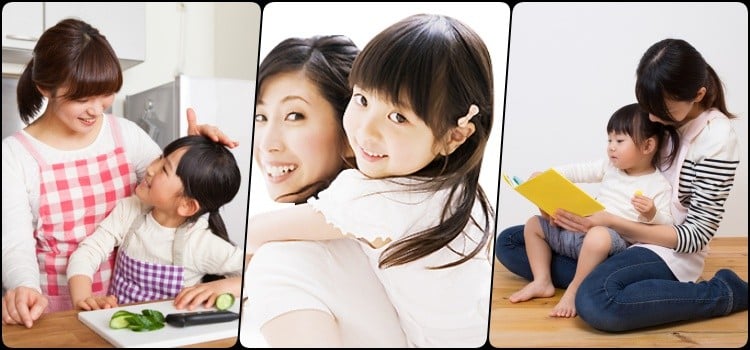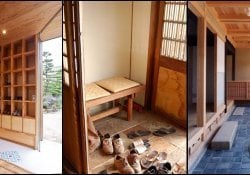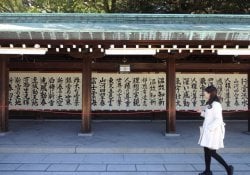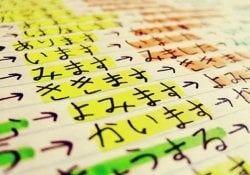In Japanese there are several ways to refer to the mother. In this article we will see the most common ways to express this. It is worth remembering that when saying mother in japan, it is very important to know that the same word is not always used, thinking about it.
In this article we will look at the most common ways to talk about mother and everything that encompasses this word in Japanese.
When you refer to your mother and also the mother of others, aunts and grandparents, there are some ways to say, below we will see some of them.
We also recommend reading:
- Family - Members of the family in Japanese
- Koseki: the Japanese family record
- Homestay in Japan – Hosting with a family
Índice de Conteúdo
母 (Haha)
(はは) Haha It's a very popular way of saying mother, in the past this word used to have other pronunciations. A word that is used by almost everyone when referring to the mother.
It used to have sounds like: はわ (Hawa), かか (Kaka), おも (omo), いろは (Iroha), あも (Omo).
Example sentence: My mother gets angry very easily
母はすぐ怒る。 Haha wa sugu okoru
母さん (Kaasan)
Kaasan, which was formerly pronounced as kakasan, has the meaning of mother.
However, it is sometimes used by husbands when referring to their wives, or in direct conversations with their wives in informal language.
Example sentence: I will keep it a secret from my mother that I got a zero.
0点を取ったことは、母さんには内緒にしよう。 Zeroten wo tottakoto wa, kaasan niwa naishou ni shiyou.

お母さん, 御母さん (Okaasan)
Like the previous meaning, it refers to the mother and in honorific language it can carry the meaning of wife.
Example sentence: my mom is fine too
お母さんも元気です
Okaasan mo genki desu
The article is still halfway through, but we recommend also reading:
母様, 母さま (Kasama)
An honorific and quite common way of saying mother.
Example sentence: Just you and your mother in a garden while the white petas fall without echoing like the snow.
庭にはあなたと母様と二人きり白い花弁が雪のように音もなく散りかかる。 Niwa niwa anata to Kasama to futarikiri shiroi hanabira ga yuki no youni otomo mo naku chirikakaru.
母親 (Hahaoya)
Another way of saying mother that is often used a lot.
Example sentence: Her mother.
彼女の母親 Kanojyo no hahaoya

お母様, 御母様, お母さま (Okasama)
A very polite and honorific way to refer to the mother.
Example sentence: What is your mother's maiden name?
お母様の旧姓は何ですか? Okasama no kyuusei wa nandesuka ?
ママ (Mama)
An intimate and familiar way of saying mother. It is also sometimes used to refer to some women's properties, such as a bar.
Example sentence: Let's try to ask the mother.
ママに聞いてみよう。 Mama ni kiitemiyou
母ちゃん (Kaachan)
This is a somewhat childish and familiar way of saying mother, it is usually said by Japanese children or pre-teens, when speaking directly to their mothers.
Example sentence: And then there's the mother with the eggs in hand.
そこへ母ちゃんが卵を持って戻ってきた Soko he kaachan ga tamago wo mottemodotekkita

おっ母 (Ohhka/Ohhaha)
A way that is most often found in Books and Novels, to refer to mother.
Example sentence: The mother, without replying, entered the house.
おっ母は何も答えてくれず、家の中に入ってきた。
Ohhka wa nanimo kotaetekurezu, ie no naka ni haittekita
母上 (Hahaue)
A polite and honorific way when referring to the mother.
Example sentence: Voldemort shed his mother's blood. But that blood lives in you and your mother's sister.
ヴォルデモートは母上の血を流した。しかしその血はきみの中に、そして母上の妹御の中に生き続けている。 Vuorudemōto wa hahaue no chi o nagashita. Shikashi sono chi wa kimi no naka ni, soshite hahaue no imōtogo no naka ni iki tsudzukete iru
お母ん (Okan)
It's a more familiar way of saying mother added to the fact that it's also a Kansai dialect. Another important factor of this mother's way of speaking that will be seen more during the reading being used in Kana.

義母 (Gibo)
Gibo is used to refer to a mother who does not necessarily have blood traits, e.g. stepmother, foster mother and mother-in-law.
Example sentence: Mary is Tom's mother-in-law.
メアリーはトムの義母である。 Mearii wa tomu no gibo de aru.
小母 (Oba)
Oba is used both to refer to grandmother, in a more familiar language, sometimes aunt, for example, and to older ladies.
Example sentence: Auntie, tonight I went to Tokyo and…
おばさん、私はその夜、京都へ行って (...) Obasan, watashi wa sono yoru, Tokyo e itte
母堂 (Bodou)
A formal way of referring to the mother of others.
Example sentence: His mother was surprised, but not as surprised as I thought she would be.
母堂はびっくりしていたが、しかしこちらが思ったほどではなかった Budou wa bikkurishiteita ga, shikashi kochira ga omotta hodo dewanakatta







